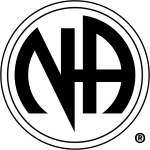Last Updated on 7 April 2021 by policychair
Project-based work groups (also called working groups) can be created by the Australian Regional Service Committee (ARSC) to perform specific tasks assigned to them.
A work group differs from a Subcommittee in that work groups are structured to complete projects within a particular timeframe and may or may not be required to attend the ARSC Meeting. Work groups are therefore not a standing component of the ARSC. They are considered ad hoc to the ARSC, and are dis-assembled when the project is completed.
Relationship between work groups and the ARSC
Work groups are created by the ARSC, with an endorsed proposal at an ARSC Meeting.
A clear definition of the scope of works expected to be carried out by the work group needs to be contained in the proposal, including a realistic timeframe for completion and a comprehensive budget forecast (if required).
The work group is then given autonomy to carry out its work, as trusted servants. This provides for operations carried out within the parameters of the endorsed proposal outlining the group’s objectives.
The Work Group Coordinator is the single point of accountability and communication and reports directly to the ARSC Admin Committee, through its Chair, in the form of quarterly written reports, or as agreed.
Work group roles and participants
Coordinator
- the Coordinator is the single point of accountability and communication to the ARSC, and responsible for the overall operation of the work group
- in most cases, the Coordinator will have a skill set that is complimentary to the work group primary objective
- the Coordinator is elected at an ARSC Meeting. This is as per ARSC Election procedure (See this procedure for more information.) The Coordinator does not need to be an ARSC participant but must be familiar with the basic functions and objectives of the ARSC
- the Coordinator is responsible for forming and the coordination of the membership of the work group
- they arrange an agenda for, and chairs for, all work group meetings using consensus-based decision-making
- responsible for all minutes and correspondence, as well as maintaining any work group files and archives
- delegates tasks and responsibilities via consensus to work group members. These can include duties of a Secretary (business meeting minute taker) and Treasurer when required, and/or other specific project tasks
- expected to support work group members to achieve desired outcomes within timeframes and budget
- may be funded to attend an ARSC Meeting, at the discretion of the ARSC, for reporting, discussion, or workshop purposes
Assistant Coordinator
- assists the Coordinator in executing their role and tasks
- in the absence of the Coordinator, assumes their role including reporting and accountability, until the return of the Coordinator or the next ARSC Meeting, whichever is sooner
- would usually hold a key functional role within the work group
- expected to attend all work group business meetings
Work group members
- have a general role in the work group
- usually assigned tasks by the Coordinator that assist the work group to achieve its objectives
- expected to attend all work group meetings
Reporting and accountability principles
Accountability in the form of regular written reports offers the greatest form of transparency and is therefore a requirement of work groups.
Written reports are to contain information related to the basic functioning of the work group including its progress, project timelines, a detailed financial account, notation of any resignations or inclusion of additional members and any other relevant information.
Reports are to be submitted electronically to the ARSC Chair prior to each ARSC Meeting or as otherwise agreed with the ARSC.
Evaluation and review
Upon completion of a work group’s project, an evaluation of the achievements and challenges takes place. This summary of the work group’s operations can be helpful for future work groups that will be formed. Sharing the challenges and solutions developed by the work group is encouraged.
Review of a work group’s project outcomes may be of benefit at a later intervals, after the work group has disbanded. This may be set in a formal timeframe and would be managed by the ARSC Admin Committee in consultation with the outgoing work group Coordinator if the need arises.

